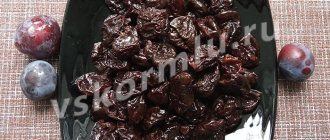The presence of a large number of useful components and relative hypoallergenicity make it possible to consume avocado while breastfeeding. The fruit will saturate milk with vitamins and microelements. The fruit is quite filling and goes well with many foods, so the fruit can be introduced into the diet by adding it to different dishes. In order not to harm your health and your baby, you need to study the features of introducing the fruit into the daily menu, its effect on the body, benefits and possible harm.
Useful properties of avocado
Avocado (alligator pear) is the fruit of a woody plant. Depending on the variety, the fruits can have different shapes: spherical, pear-shaped and oval. The ripe fruit has a tough green skin and yellow butter-like flesh.
Avocado contains minerals and vitamins of various groups. A large amount of fat makes the fruit high in calories. At the same time, the fruit does not contain sugar, so it can be included in the diet of people suffering from insulin deficiency.
Regular consumption of alligator pear will benefit the body for a number of reasons:
- the presence of oleic acid will cleanse the blood of unnecessary cholesterol;
- a large amount of vitamin E will protect cells from viruses;
- essential fatty acids prevent atherosclerosis;
- a large amount of K makes it resistant to stress;
- vitamin B2 improves blood circulation;
- The immune system is strengthened by vitamin C.
The fruit improves the functioning of the gastrointestinal tract, helps digest substances that are involved in the formation of teeth and bones. The fruit is a source of protein.
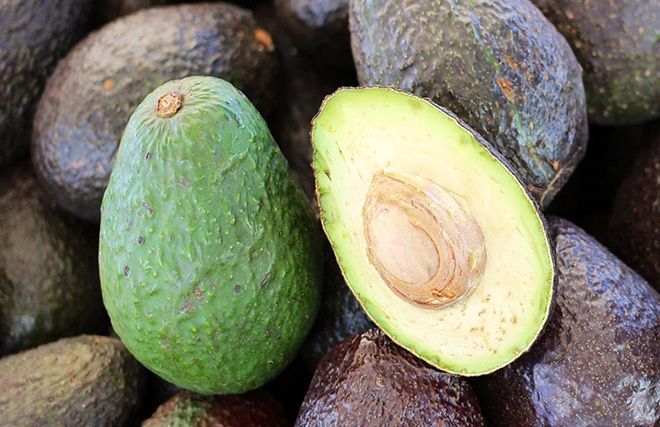
The benefits of consuming this fruit are obvious. There are practically no contraindications to eating avocados, the exception may be individual intolerance.
Avocado: studying the composition of the product

There are more than 400 species of this evergreen plant in the world. The homeland of avocados is Asia, but today the fruits are grown in Africa, America, Israel, and Australia. From a scientific point of view, avocado is a single-seeded berry, but tastes like a vegetable. The fruits, depending on the variety, can vary significantly in size and weigh from 50 g to 1.5 kg. The avocado peel is dense, dark green in color, the flesh is yellow or light green, has an oily consistency and a nutty aftertaste. In the center of the fruit there is a large brown seed. Avocado contains a lot of fatty acids, which explains its high calorie content, relative to other products of plant origin - about 150-200 kcal per 100 g.
Avocado is a natural source of vitality, helps the mother recover faster after pregnancy and childbirth, and helps the baby receive the vitamins and minerals necessary for full development, which enter the body through breast milk. The composition contains almost no sugars, unsaturated fats predominate, so the fruit can be included in the menu even if you have diabetes. The vitamin composition is distinguished by a rich content of B vitamins, known for their positive effect on the activity of the nervous system, the ability to fight increased fatigue and insomnia. Vitamin B9 (folic acid) in combination with fatty acids helps control appetite and regulate hormonal levels after childbirth. Vitamin C is an essential component of strong immunity. Vitamin PP is involved in fat metabolism and reduces cholesterol levels in the blood. Among the macroelements of avocados, potassium stands out, which is necessary for the quality functioning of the cardiovascular system. Copper contained in avocado is an indispensable participant in hematopoiesis and is responsible for oxygen cellular metabolism.
Table: chemical composition and calorie content
| Nutrient | Quantity | % of the norm in 100 g* |
| Calorie content | 160 kcal | 9.5% |
| Squirrels | 2 g | 2.6% |
| Fats | 14.66 g | 24.4% |
| Carbohydrates | 1.83 g | 0.9% |
| Alimentary fiber | 6.7 g | 33.5% |
| Vitamins | ||
| Vitamin A, RE | 7 mcg | 0.8% |
| beta carotene | 0.062 mg | 1.2% |
| Vitamin B1, thiamine | 0.067 mg | 4.5% |
| Vitamin B2, riboflavin | 0.13 mg | 7.2% |
| Vitamin B4, choline | 14.2 mg | 2.8% |
| Vitamin B5, pantothenic | 1.389 mg | 27.8% |
| Vitamin B6, pyridoxine | 0.257 mg | 12.9% |
| Vitamin B9, folates | 81 mcg | 20.3% |
| Vitamin C, ascorbic acid | 10 mg | 11.1% |
| Vitamin K, phylloquinone | 21 mcg | 17.5% |
| Vitamin RR, NE | 1.738 mg | 8.7% |
| Macronutrients | ||
| Potassium, K | 485 mg | 19.4% |
| Calcium, Ca | 12 mg | 1.2% |
| Magnesium, Mg | 29 mg | 7.3% |
| Sodium, Na | 7 mg | 0.5% |
| Phosphorus, Ph | 52 mg | 6.5% |
| Microelements | ||
| Iron, Fe | 0.55 mg | 3.1% |
| Manganese, Mn | 0.142 mg | 7.1% |
| Copper, Cu | 190 mcg | 19% |
| Selenium, Se | 0.4 mcg | 0.7% |
| Fluorine, F | 7 mcg | 0.2% |
| Zinc, Zn | 0.64 mg | 5.3% |
| Fatty acid | ||
| Saturated fatty acids | 2.13 g | 10% |
| Monounsaturated fatty acids | 9.8 g | 45% |
| Polyunsaturated fatty acids | 1.82 g | 8% |
% of the norm in 100 g* - approximate values for a middle-aged nursing woman
The effect of avocado on breastfeeding
To figure out whether a nursing woman can eat avocado, you need to study its effect on the body.
We recommend checking out Avocado Bruschetta
The fruit contains many useful microelements:
- alimentary fiber;
- palmitic and oleic acid;
- folic acids;
- vitamins PP, A, B, C, K, E;
- Na;
- Fe.
Thanks to the listed components, alligator pear has a beneficial effect on the body of mothers and newborns. Avocado has a number of beneficial properties that are indispensable for breastfeeding:
- restores and normalizes hormonal levels;
- improves sleep and relieves depression;
- restores metabolism, preventing obesity;
- has a beneficial effect on vision;
- promotes the development of brain cells;
- Provides the body of both mother and child with folic acid, which is involved in the regeneration process.
This fruit has a positive effect on the reproductive, cardiovascular and immune systems of adults and children.

Can a nursing mother eat avocado while breastfeeding - pros and cons
The tropical fruit is valued for its beneficial properties, unusual taste, and versatility of use. Avocados during breastfeeding are allowed to be included in the diet in the absence of contraindications, following the basic recommendations for consumption. The pulp of the fruit can replace butter and mayonnaise.
What are the benefits of avocado?
The product has high nutritional value. Per 100 g there are 2 g of protein (2.4% of the daily value), 14.7 g of fat (22.6%), 1.8 g of carbohydrates (1.4%), energy value - 160 kcal.
A large amount of dietary fiber (6.7 g - 33.5% of the norm) makes the fruit beneficial for the intestines, as it cleanses its walls of waste and toxins and serves as food for beneficial microflora.
Fiber helps lower blood sugar.
On a note! The so-called alligator pear contains vitamins A, B1, B2, B4, B5, B6, B9, C, K, PP. The mineral composition is represented by potassium, calcium, zinc, magnesium, copper, phosphorus, iron, manganese.
Benefits for baby and mother
The benefits of consuming this fruit for a nursing woman include:
- increased immune strength;
- activation of brain activity;
- prevention of premature aging;
- increased performance;
- removal of harmful cholesterol;
- increase in hemoglobin level.
Eating avocados is also good for baby's health. Regular consumption of this fruit during breastfeeding has the following advantages:
- enrichment of blood with oxygen;
- hair strengthening;
- prevention of anemia.
In addition, the fruit eliminates constipation and normalizes the functioning of the digestive organs.
Benefits and harms
Avocado is not everyone's cup of tea. But this fruit has many beneficial properties:
- restores and normalizes hormonal levels;
- improves sleep;
- relieves depression;
- restores metabolism and prevents obesity;
- maintains good vision;
- participates in the development of brain cells;
- Provides the body with folic acid.
Avocado also replenishes the body’s lack of vitamins, which strengthen the cardiovascular, digestive and reproductive systems, and strengthen the immune system.
Despite such a number of useful substances, this fruit also has negative sides.
Important! It may cause allergies. Avocados should be excluded from the diet for those people who suffer from allergies to citrus fruits.
It is allowed to use it with caution if an allergic reaction is possible only to certain of its components.
If you have problems with the gastrointestinal tract, you can eat avocado, but only with caution, because it contains a lot of fat.
But for people who have serious liver problems and are on a special diet, it is better to avoid eating avocados.
It is forbidden to eat the seeds and leaves of this fruit. They contain toxins that harm the body.
For mother
Doctors advise young mothers to add avocado and various dishes prepared from it to their daily diet. The benefits of eating this fruit include:
- improving immune function;
- activation of brain activity;
- prevention of premature aging;
- increased performance;
- removal of cholesterol;
- elimination of signs of hypertension;
- increase in hemoglobin level.
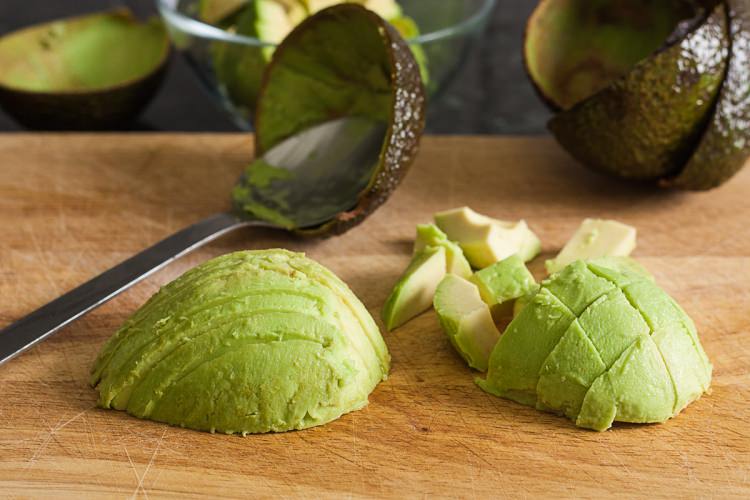
For the baby
It is no secret that eating avocado has a beneficial effect on the health of not only the mother, but also her newborn baby. Regular consumption of fruits during breastfeeding has the following benefits:
- enrichment of the child’s blood with oxygen;
- strengthening the baby's hair;
- preventing the occurrence of anemia in infants;
- eliminating constipation and normalizing the functioning of the digestive system.
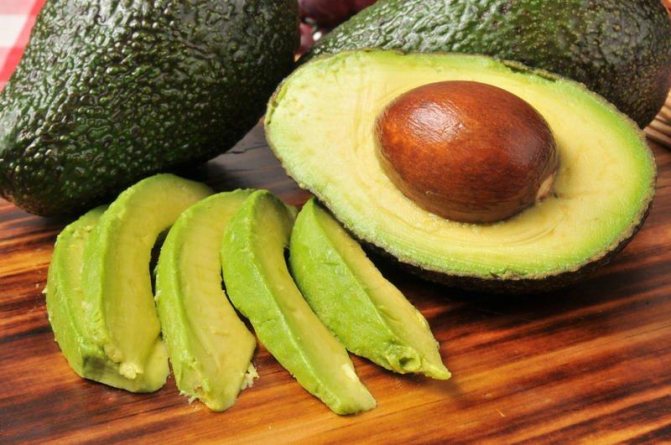
Rules for introducing avocados into the diet
To avoid the negative consequences of consuming avocados during breastfeeding, you need to follow some rules:
- Introduce the fruit gradually, starting with 1 tsp. pulp in the morning. Then wait a couple of days to see the baby's reaction. If negative effects do not appear, the portion can be doubled. When the baby gets used to the new product, you can eat no more than half the fetus per day, 2 times a week.
- If a child develops allergies or stomach problems, alligator pear should be excluded from the diet.
- Along with the introduction of an exotic fruit, other new products cannot be introduced.
- The fruit should be consumed 30 minutes before the main meal.
- You need to choose ripe fruits, without dents, with a uniform peel color.
We recommend that you read Losing Weight with Avocados
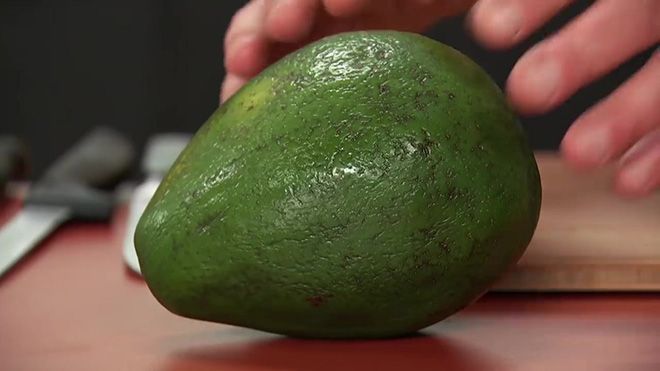
Allergies have a cumulative effect, so they can appear even after a week. If there is any redness of the skin or deterioration in the child’s health, you should exclude avocado from the diet and try to reintroduce it after 2 months.
A mother can introduce avocado into her menu only when the baby is 2 months old. It is important to combine foods correctly in your diet. It is not advisable to combine the fruit with fatty foods.
How to use it correctly?
In addition to the fact that the beneficial substances that avocados are rich in have a beneficial effect on the mother’s body, they also pass into breast milk, thereby promoting the proper development of the baby.
During lactation, avocados (and all other fruits and vegetables) should be introduced as carefully as possible; it is best to do this in small portions. After feeding new foods, it is necessary to carefully monitor the child’s reaction and immediately remove them from the diet if negative reactions occur. According to experts, it is best to introduce avocado into the mother’s diet when the child is at least 2 months old.
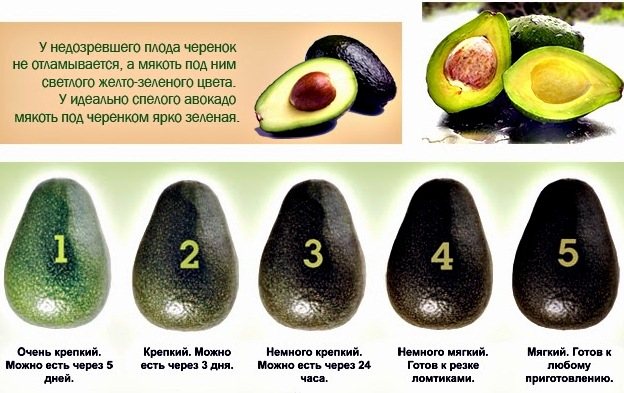
Tip: how to choose a ripe avocado.
When eating avocado on a regular basis, one should not forget about its high calorie content, especially for those mothers who want to get rid of excess weight acquired while bearing a child as quickly as possible. To prevent avocados from causing you to gain extra pounds, it is recommended to consume no more than 1 fruit per day. As a rule, avocados are placed in various salads, but eating it in this form is acceptable after the child has already adapted to other salad components. Dishes that include avocado must be prepared from proven, high-quality products that are safe for the baby’s body.
Recipes for nursing mothers
The following dishes with avocado are suitable for the diet of a young mother during the feeding period:
- sandwiches;
- salad;
- smoothie.
A sandwich is the easiest way to eat fruit. Preparation consists of the following steps:
- Separate the avocado pulp from the pit and peel.
- Place the pulp in a plate and mash with a fork until pureed.
- Spread the puree in a thin layer onto the toast.
- Place a plate of boiled turkey or chicken on top.
You can make a hot sandwich, for this you will need the following products:
- 2-3 pieces of avocado.
- A piece of bread.
- Hard cheese, finely grated.
- Finely chopped dill.

Slices of fruit are placed on bread, cheese and dill are sprinkled on top. The sandwich is placed on a greased baking sheet and placed in an oven preheated to 180°C for 10 minutes.
The list of fruits allowed during lactation is very limited. However, mother can prepare a salad from products that are already included in the diet and do not cause an allergic reaction in the baby.
To prepare the salad you need the following ingredients:
- apple;
- banana;
- half an avocado;
- half a cup of corn flakes;
- a glass of yogurt.
The fruits are cut into cubes, placed in a deep container and filled with yogurt. Consume immediately after preparation.
Smoothies are also useful for a nursing mother because the drink helps fight extra pounds gained during pregnancy. To make this dish you will need the following ingredients:
- half a banana;
- half an avocado;
- 1 tsp. powdered sugar;
- half a glass of chilled water.
We recommend that you read Avocado Selection
All ingredients are placed in a blender bowl and blended until smooth. The drink should be drunk immediately after preparation.
If the child and mother are not allergic to honey, you can replace powdered sugar with it.
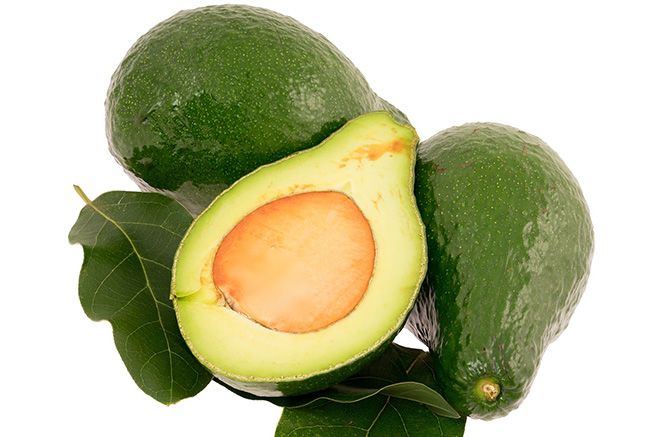
How to select and store
Features to look out for:
- It is recommended to buy the Pinkerton variety. It is he who has small bones. The rind of the ripe fruit is green, dark and dense. Small pimples are visible on the surface;
- ripeness is determined by elasticity: just press on the peel with your fingers: if there are no dents left, then the fruit is not ripe. The ripe fruit remains slightly deformed.
Brown coloring under the stem indicates an overripe avocado. It is strictly prohibited to introduce it into the diet. For ripening, a paper bag and a dark, cool place from +18 to +24 C are suitable. For long-term storage, maintain a temperature of +4 to +6 C.
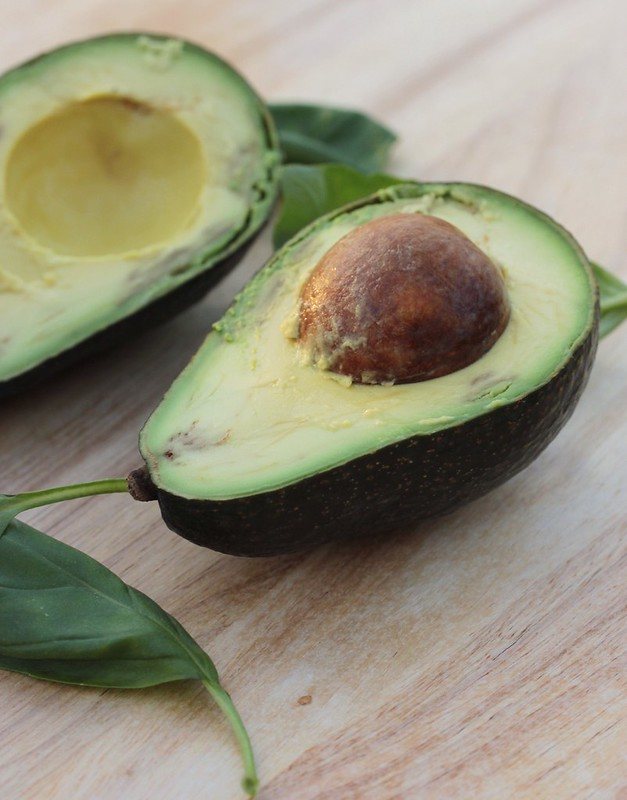
Possible harm to mother and baby
Before a nursing mother introduces this exotic fruit into her diet, she should study the possible negative effects on the body. Undesirable consequences from use include:
- Deterioration of liver function. This fruit has a negative effect on liver function. If there are problems with this organ, then it is better not to include alligator pear in your menu. The most dangerous are considered to be Mexican varieties containing large amounts of anethole and estragole.
- Allergic reaction. Due to the high content of milky juice, avocado increases the number of antibodies in the body.
If consumed frequently, the fruit can cause milk to stagnate in the ducts, which interferes with the outflow of fluid.
Alligator pear may be an allergen for people with allergies to citrus fruits.
Alligator pear can also cause harm to babies. Fatty acids getting into milk can cause intestinal colic and stool upset.
Is it possible to eat in the first month of a baby’s life and from what month is it permissible?

In addition, the baby’s body is not yet resistant to potential allergens, so doctors do not recommend that a nursing woman eat foods that can cause allergies and follow a strict diet at first.
Avocado can be gradually included in your menu during breastfeeding, when the baby is 3 months old. It is during this period that most children experience colic and flatulence, and the functioning of the gastrointestinal tract normalizes. The child’s body’s resistance to allergens also increases significantly. Now the mother’s diet can be expanded.



